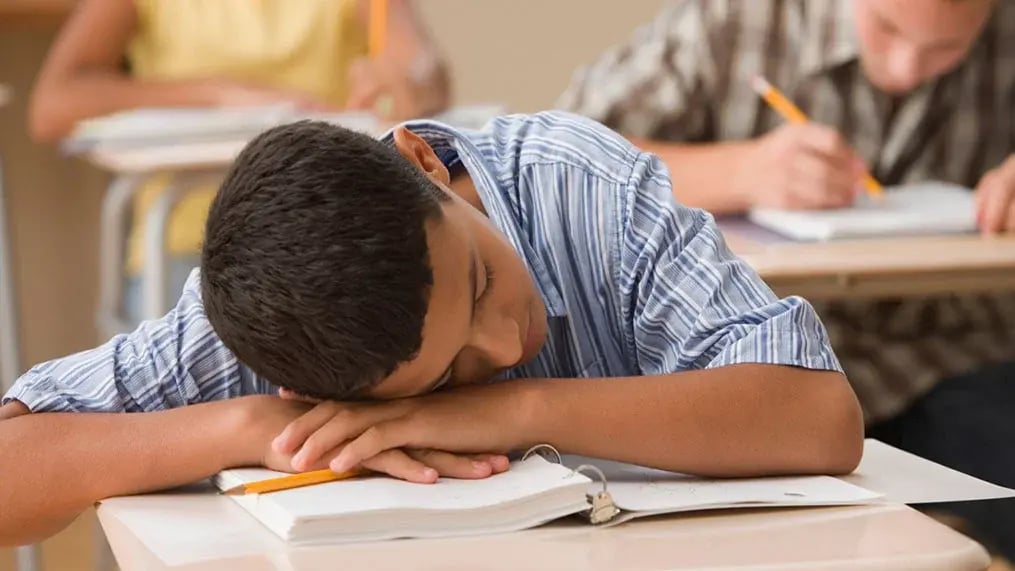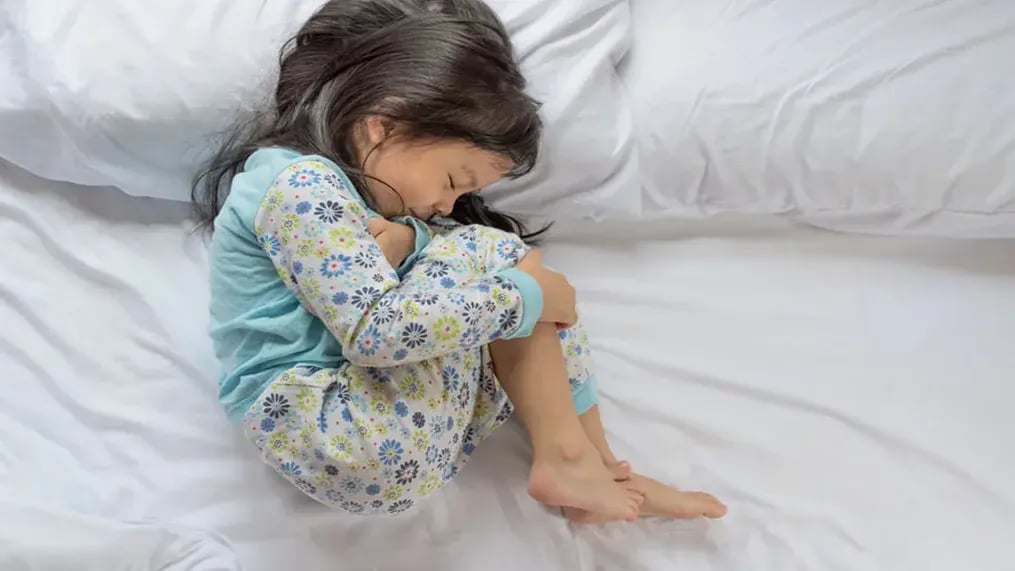- Irritability And Lashing Out
- Sleep Deprivation
- Withdrawing From Others
- Crying
- Low Self-Esteem And Lack Of Confidence
- Changes In Appetite
- Abdominal Distress
- Fear
Introduction
Parenting is a hard job to do. There are no weekends off, the pay is meager, and the demands of your job are endless. But it can also be the most rewarding occupation out there, especially when you know you are the sole point of security and trust for your kids, and that they cannot do without you. However, the struggle of a modern existence is such that parents often do not get enough time or attention to pay to their kids. As a result, most end up overcompensating by helicopter-parenting or adding parental pressure to your child. You may think you are doing the right thing, the way it used to be in your days. But such missteps can end up being expensive for you, affecting your kid’s mental health in the long run. Unlike popular beliefs, your kid cannot just ‘get over it’ in the future, they end up as underdeveloped or traumatized adults with poor self-esteem and socializing skills. To avoid all that, it is ideal for parents to recognize the signs and stop adding parental pressure to children to compensate for their own shortcomings.
Signs You Are Adding Parental Pressure To Your Kids
Irritability And Lashing Out
Irritation in children only takes place when they are suffering from something but are unable to speak about it, resolve it, or share it. In such cases, when broached on the same topic, they end up lashing out to not share their suffering or pain. It is important for parents to note if their happy-go-lucky kid is suddenly lashing out, as it may be a sign of parental pressure or other deeper issues.
Sleep Deprivation

Kids do not have healthy coping mechanisms, unless taught otherwise from a tender age. Even if your kids can suppress all their fears and anxieties, they come out to haunt their dreams at night, not letting them sleep. As a result, their sleep, concentration, focus, and mental well-being all suffer and pay the price.
Withdrawing From Others
If your friendly, outgoing kid is talking less and less, or socially withdrawing from their friends or others, keep an eye out. Often when kids feel too much parental pressure, or specific guidance on choosing ‘good friends’ and cutting off the ‘bad ones,’ they end up avoiding all forms of social interactions, preferring the solace of solitude instead. Also, social withdrawal in children can lead to a lonely adult in the future.
Crying
Crying is normal in kids. Any form of denial can lead to it in young kids, while fights or injuries can cause tears in older children too. But if your child is crying out of the ordinary, due to no special academic, peer, or familial pressure, and refuses to confide in you, it may be a sign of parental pressure.
Low Self-Esteem And Lack Of Confidence

Children who experience parental pressure often end up with low levels of confidence and poor self-esteem. If your kid is obese, or too thin, or does not excel at something, try to word the matter positively, without insulting or belittling them. Your kid knows their body size, your constant reminder will not help them alter it or reach a healthy stage of development. Instead of advising them to go for a jog, or cut back on food, either join them in the task, or sit down and have a clear conversation without pressuring them. Your child’s self-esteem will rise only when they feel their choices matter more than their flaws.
Changes In Appetite
Appetite changes are related to parental pressure, especially if you are trying to cut back on calories or include more of them in your kid’s diet. Peer pressure, parental pressure, and constant ridicule can force a kid to undergo unhealthy dietary changes to look a certain way and be accepted. But your child needs to understand, it is their health that is primary and not their appearance. Any such dietary changes should be done only with the guidance of a healthcare professional, not due to comments from relatives or other parents.
Abdominal Distress

Abdominal distress is a less explored but relevant issue for children who suffer from parental pressure. If verbal conflicts between you and your child led to them rushing off to the toilet soon after, then a pattern needs to be identified and the problem addressed, as their emotional stress has found a physical outlet. A common sign of anxiety in kids, parental pressure can also significantly contribute to it and invite them back to their home for a longer stay.
Fear
A prime sign of parental pressure in children is fear. Your kids should definitely be a little scared of you and respect you. But in times of distress, if their first reaction is fear and panic, not of the situation, but of you, then there may be a problem. Your kids should feel safe enough to come to you with their problems and know that despite all the scoldings and punishment, you are there for them.
Conclusion
Parental pressure is no crime. It is simply parents trying too hard to be good at what they do. Relax, take a deep breath. You are doing good. And you will do even better for your kids if you listen to them and learn to identify the signs of parental pressure. This will help you understand your kid’s limits, as well as yours, creating a safe and harmonious bonding.
Kaushiki Gangully is a content writing specialist with a passion for children's nutrition, education, and well-being. With more than five years of writing experience and a science-based background, she provides nuanced insights to help families raise happy, healthy kids. Kaushiki believes in making learning and healthy eating fun, empowering parents with practical, easy advice.
The views expressed are that of the expert alone.
The information provided in this content is for informational purposes only and should not be considered a substitute for professional medical advice, diagnosis, or treatment. Always seek the advice of your physician or another qualified healthcare provider before making any significant changes to your diet, exercise, or medication routines.
















